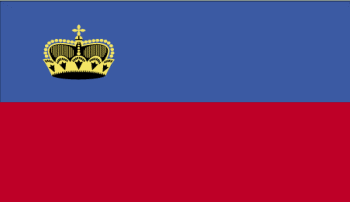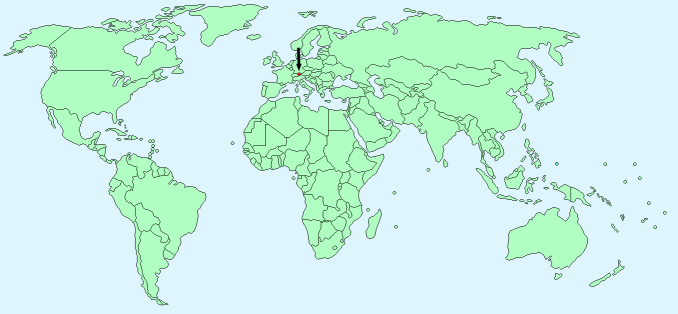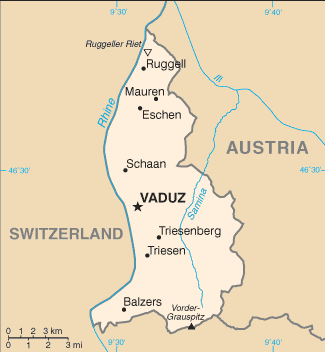Liechtenstein


Continent – Europe
Region – Central Europe
Size – 160 km²
Geography – mostly mountainous
Language – German (official), Alemannic, Italian
Religion – Roman Catholic (official) 75.9%, Protestant 6.5%, Muslim 5.4%, None 5.4%, Other 6.8%
Monetary Unit – Swiss franc
Natural Resources – hydroelectric potential, arable land
Agriculture – wheat, barley, corn, potatoes; livestock, dairy products
Industry – electronics, metal manufacturing, dental products, ceramics, pharmaceuticals, food products, precision instruments, tourism, optical instruments

Neighbouring Countries – Austria, Switzerland
Population – 37,313 (2014 estimate)
Population Growth Rate – 0.82%
Average Life Expectancy – 81.68
Capital City – Vaduz (5,000)
Highest Mountain – Vorder-Grauspitz (2,599m)
Longest River – Rhine (1,233 in France, Austria, Liechtenstein, Netherlands, Germany, Switzerland)
Climate – Continental – cold winters – -2°C to 12°C and warm summers 14°C to 24°C
Yearly Rainfall – 120 cm (approx)
Plant Life – conifers, red beech, sycamore, maple, alder, larch, gentian, alpine rose, edelweiss, orchids
Animal Life – deer, fox, badger, and chamois
Bird Life – 120 species including ravens and eagles
Harvard Reference for this page:
Heather Y Wheeler. (2015). Liechtenstein. Available: https://www.naturalhistoryonthenet.com/Facts_Figures/Country_Facts/liechtenstein.htm. Last accessed Monday, July 18, 2016
Facts and Figures Pages
